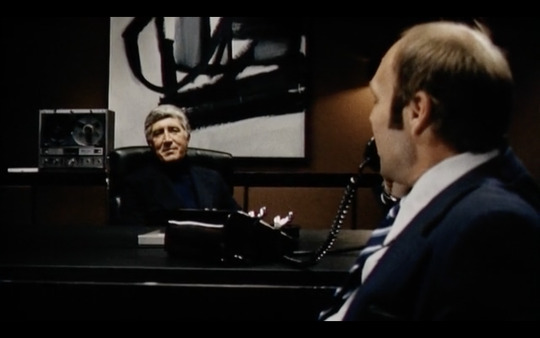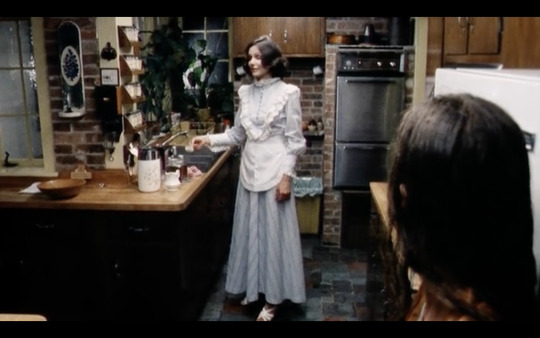#wordpress meta
Explore tagged Tumblr posts
Text
In more recent updates:
There was a second buyout offer from Matt to flush out a 'leaker' offering employees 9 months severance this time. Rumors suggest is he's only honored a few of the employees that took him up on it telling others that Automattic is too short-staffed to let them go at the moment, and that they'll need to wait until he can poach more of WP Engine's employees to replace them.
WP Engine filed for a preliminary injunction - essentially asking a judge to make Matt shut up and restore their access to WordPress.org until the full trial was resolved. The motion was granted, and in terms that do not bode well for Matt's chances of winning the full trial (judge agreed Matt is an ass and openly declaring that you're punishing somebody for daring to sue you is a poor idea).
Matt handles this all gracefully and ragequits the community slack. (404 Media article)
There's a whole pineapple incident that nobody understands? (Chron article | 404 Media article)
Matt flounces some more by closing account registrations and plugin reviews on Wordpress.org to ostensibly give volunteers a break for the holidays. He's never done this before, and it's accompanied by more whining about how he's being sued. He hopes "to find the time, energy, and money to reopen all of this sometime in the new year," because "much of the time [he] would spend making WordPress better is being taken up defending against WP Engine’s legal attacks."
- Despite the veiled threat of not reopening WordPress.org because Matt is suffering so, registrations have seemingly been restored as of January 3, 2025.
Matt bravely postponed his family movie night to spend Christmas Eve showing his ass on reddit again.
Also, as ever, screenshots of private messages without all parties consent are against WordPress's and tumblr's Code of Conducts (under Privacy Violations on tumblr's).
Actively maintained timeline here.
I just need everyone to see the kind of day Matthew Charles Mullenweg, CEO of Automattic and tumblr user @photomatt had on the Orange Website which is basically diametrically opposed to tumblr:

5K notes
·
View notes
Text
man i'm gonna get some popcorn when photograph matthew actually makes it to a trial.
1 note
·
View note
Text
autocrattic (more matt shenanigans, not tumblr this time)
I am almost definitely not the right person for this writeup, but I'm closer than most people on here, so here goes! This is all open-source tech drama, and I take my time laying out the context, but the short version is: Matt tried to extort another company, who immediately posted receipts, and now he's refusing to log off again. The long version is... long.
If you don't need software context, scroll down/find the "ok tony that's enough. tell me what's actually happening" heading, or just go read the pink sections. Or look at this PDF.
the background
So. Matt's original Good Idea was starting WordPress with fellow developer Mike Little in 2003, which is free and open-source software (FOSS) that was originally just for blogging, but now powers lots of websites that do other things. In particular, Automattic acquired WooCommerce a long time ago, which is free online store software you can run on WordPress.
FOSS is... interesting. It's a world that ultimately is powered by people who believe deeply that information and resources should be free, but often have massive blind spots (for example, Wikipedia's consistently had issues with bias, since no amount of "anyone can edit" will overcome systemic bias in terms of who has time to edit or is not going to be driven away by the existing contributor culture). As with anything else that people spend thousands of hours doing online, there's drama. As with anything else that's technically free but can be monetized, there are:
Heaps of companies and solo developers who profit off WordPress themes, plugins, hosting, and other services;
Conflicts between volunteer contributors and for-profit contributors;
Annoying founders who get way too much credit for everything the project has become.
the WordPress ecosystem
A project as heavily used as WordPress (some double-digit percentage of the Internet uses WP. I refuse to believe it's the 43% that Matt claims it is, but it's a pretty large chunk) can't survive just on the spare hours of volunteers, especially in an increasingly monetised world where its users demand functional software, are less and less tech or FOSS literate, and its contributors have no fucking time to build things for that userbase.
Matt runs Automattic, which is a privately-traded, for-profit company. The free software is run by the WordPress Foundation, which is technically completely separate (wordpress.org). The main products Automattic offers are WordPress-related: WordPress.com, a host which was designed to be beginner-friendly; Jetpack, a suite of plugins which extend WordPress in a whole bunch of ways that may or may not make sense as one big product; WooCommerce, which I've already mentioned. There's also WordPress VIP, which is the fancy bespoke five-digit-plus option for enterprise customers. And there's Tumblr, if Matt ever succeeds in putting it on WordPress. (Every Tumblr or WordPress dev I know thinks that's fucking ridiculous and impossible. Automattic's hiring for it anyway.)
Automattic devotes a chunk of its employees toward developing Core, which is what people in the WordPress space call WordPress.org, the free software. This is part of an initiative called Five for the Future — 5% of your company's profits off WordPress should go back into making the project better. Many other companies don't do this.
There are lots of other companies in the space. GoDaddy, for example, barely gives back in any way (and also sucks). WP Engine is the company this drama is about. They don't really contribute to Core. They offer relatively expensive WordPress hosting, as well as providing a series of other WordPress-related products like LocalWP (local site development software), Advanced Custom Fields (the easiest way to set up advanced taxonomies and other fields when making new types of posts. If you don't know what this means don't worry about it), etc.
Anyway. Lots of strong personalities. Lots of for-profit companies. Lots of them getting invested in, or bought by, private equity firms.
Matt being Matt, tech being tech
As was said repeatedly when Matt was flipping out about Tumblr, all of the stuff happening at Automattic is pretty normal tech company behaviour. Shit gets worse. People get less for their money. WordPress.com used to be a really good place for people starting out with a website who didn't need "real" WordPress — for $48 a year on the Personal plan, you had really limited features (no plugins or other customisable extensions), but you had a simple website with good SEO that was pretty secure, relatively easy to use, and 24-hour access to Happiness Engineers (HEs for short. Bad job title. This was my job) who could walk you through everything no matter how bad at tech you were. Then Personal plan users got moved from chat to emails only. Emails started being responded to by contractors who didn't know as much as HEs did and certainly didn't get paid half as well. Then came AI, and the mandate for HEs to try to upsell everyone things they didn't necessarily need. (This is the point at which I quit.)
But as was said then as well, most tech CEOs don't publicly get into this kind of shitfight with their users. They're horrid tyrants, but they don't do it this publicly.
ok tony that's enough. tell me what's actually happening
WordCamp US, one of the biggest WordPress industry events of the year, is the backdrop for all this. It just finished.
There are.... a lot of posts by Matt across multiple platforms because, as always, he can't log off. But here's the broad strokes.
Sep 17
Matt publishes a wanky blog post about companies that profit off open source without giving back. It targets a specific company, WP Engine.
Compare the Five For the Future pages from Automattic and WP Engine, two companies that are roughly the same size with revenue in the ballpark of half a billion. These pledges are just a proxy and aren’t perfectly accurate, but as I write this, Automattic has 3,786 hours per week (not even counting me!), and WP Engine has 47 hours. WP Engine has good people, some of whom are listed on that page, but the company is controlled by Silver Lake, a private equity firm with $102 billion in assets under management. Silver Lake doesn’t give a dang about your Open Source ideals. It just wants a return on capital. So it’s at this point that I ask everyone in the WordPress community to vote with your wallet. Who are you giving your money to? Someone who’s going to nourish the ecosystem, or someone who’s going to frack every bit of value out of it until it withers?
(It's worth noting here that Automattic is funded in part by BlackRock, who Wikipedia calls "the world's largest asset manager".)
Sep 20 (WCUS final day)
WP Engine puts out a blog post detailing their contributions to WordPress.
Matt devotes his keynote/closing speech to slamming WP Engine.
He also implies people inside WP Engine are sending him information.
For the people sending me stuff from inside companies, please do not do it on your work device. Use a personal phone, Signal with disappearing messages, etc. I have a bunch of journalists happy to connect you with as well. #wcus — Twitter I know private equity and investors can be brutal (read the book Barbarians at the Gate). Please let me know if any employee faces firing or retaliation for speaking up about their company's participation (or lack thereof) in WordPress. We'll make sure it's a big public deal and that you get support. — Tumblr
Matt also puts out an offer live at WordCamp US:
“If anyone of you gets in trouble for speaking up in favor of WordPress and/or open source, reach out to me. I’ll do my best to help you find a new job.” — source tweet, RTed by Matt
He also puts up a poll asking the community if WP Engine should be allowed back at WordCamps.
Sep 21
Matt writes a blog post on the WordPress.org blog (the official project blog!): WP Engine is not WordPress.
He opens this blog post by claiming his mom was confused and thought WP Engine was official.
The blog post goes on about how WP Engine disabled post revisions (which is a pretty normal thing to do when you need to free up some resources), therefore being not "real" WordPress. (As I said earlier, WordPress.com disables most features for Personal and Premium plans. Or whatever those plans are called, they've been renamed like 12 times in the last few years. But that's a different complaint.)
Sep 22: More bullshit on Twitter. Matt makes a Reddit post on r/Wordpress about WP Engine that promptly gets deleted. Writeups start to come out:
Search Engine Journal: WordPress Co-Founder Mullenweg Sparks Backlash
TechCrunch: Matt Mullenweg calls WP Engine a ‘cancer to WordPress’ and urges community to switch providers
Sep 23 onward
Okay, time zones mean I can't effectively sequence the rest of this.
Matt defends himself on Reddit, casually mentioning that WP Engine is now suing him.
Also here's a decent writeup from someone involved with the community that may be of interest.
WP Engine drops the full PDF of their cease and desist, which includes screenshots of Matt apparently threatening them via text.
Twitter link | Direct PDF link
This PDF includes some truly fucked texts where Matt appears to be trying to get WP Engine to pay him money unless they want him to tell his audience at WCUS that they're evil.
Matt, after saying he's been sued and can't talk about it, hosts a Twitter Space and talks about it for a couple hours.
He also continues to post on Reddit, Twitter, and on the Core contributor Slack.
Here's a comment where he says WP Engine could have avoided this by paying Automattic 8% of their revenue.
Another, 20 hours ago, where he says he's being downvoted by "trolls, probably WPE employees"
At some point, Matt updates the WordPress Foundation trademark policy. I am 90% sure this was him — it's not legalese and makes no fucking sense to single out WP Engine.
Old text: The abbreviation “WP” is not covered by the WordPress trademarks and you are free to use it in any way you see fit. New text: The abbreviation “WP” is not covered by the WordPress trademarks, but please don’t use it in a way that confuses people. For example, many people think WP Engine is “WordPress Engine” and officially associated with WordPress, which it’s not. They have never once even donated to the WordPress Foundation, despite making billions of revenue on top of WordPress.
Sep 25: Automattic puts up their own legal response.
anyway this fucking sucks
This is bigger than anything Matt's done before. I'm so worried about my friends who're still there. The internal ramifications have... been not great so far, including that Matt's naturally being extra gung-ho about "you're either for me or against me and if you're against me then don't bother working your two weeks".
Despite everything, I like WordPress. (If you dig into this, you'll see plenty of people commenting about blocks or Gutenberg or React other things they hate. Unlike many of the old FOSSheads, I actually also think Gutenberg/the block editor was a good idea, even if it was poorly implemented.)
I think that the original mission — to make it so anyone can spin up a website that's easy enough to use and blog with — is a good thing. I think, despite all the ways being part of FOSS communities since my early teens has led to all kinds of racist, homophobic and sexual harm for me and for many other people, that free and open-source software is important.
So many people were already burning out of the project. Matt has been doing this for so long that those with long memories can recite all the ways he's wrecked shit back a decade or more. Most of us are exhausted and need to make money to live. The world is worse than it ever was.
Social media sucks worse and worse, and this was a world in which people missed old webrings, old blogs, RSS readers, the world where you curated your own whimsical, unpaid corner of the Internet. I started actually actively using my own WordPress blog this year, and I've really enjoyed it.
And people don't want to deal with any of this.
The thing is, Matt's right about one thing: capital is ruining free open-source software. What he's wrong about is everything else: the idea that WordPress.com isn't enshittifying (or confusing) at a much higher rate than WP Engine, the idea that WP Engine or Silver Lake are the only big players in the field, the notion that he's part of the solution and not part of the problem.
But he's started a battle where there are no winners but the lawyers who get paid to duke it out, and all the volunteers who've survived this long in an ecosystem increasingly dominated by big money are giving up and leaving.
Anyway if you got this far, consider donating to someone on gazafunds.com. It'll take much less time than reading this did.
#tony muses#tumblr meta#again just bc that's my tag for all this#automattic#wordpress#this is probably really incoherent i apologise lmao#i may edit it
750 notes
·
View notes
Text

...The semifinal version of the new "featured image" for the Young Wizards website. (Not quite perfect yet—got some labeling to do—but, as we say around the household, "close enough for jazz.")
...Now if only I can figure out where "under the hood" I'm supposed to put it so that it actually shows the F up in place of the old one. 🫤
(wanders off muttering)
#Young Wizards meta#Wordpress issues#there are a lot of things to like about the YW website's Soledad theme#but right now I just want to kick it around the block#in an extremely punitive kind of way
92 notes
·
View notes
Text
@staff are going to port Tumblr to a WordPress backend.
I know they've slowly been implementing the Block Editor in Tumblr, but I'm really curious how they plan to implement reblogs in WordPress.
31 notes
·
View notes
Text
Automattic, the company that owns WordPress.com, is required to remove a controversial login checkbox from WordPress.org and let WP Engine back into its ecosystem after a judge granted WP Engine a preliminary injunction in its ongoing lawsuit. In addition to removing the checkbox—which requires users to denounce WP Engine before proceeding—the preliminary injunction orders that Automattic is enjoined from “blocking, disabling, or interfering with WP Engine’s and/or its employees’, users’, customers’, or partners’ access to wordpress.org” or “interfering with WP Engine’s control over, or access to, plugins or extensions (and their respective directory listings) hosted on wordpress.org that were developed, published, or maintained by WP Engine,” the order states. In the immediate aftermath of the decision, Automattic founder and CEO Matt Mullenweg asked for his account to be deleted from the Post Status Slack, which is a popular community for businesses and people who work on WordPress’s open-source tools.
“It's hard to imagine wanting to continue to working on WordPress after this,” he wrote in that Slack, according to a screenshot viewed by 404 Media. “I'm sick and disgusted to be legally compelled to provide free labor to an organization as parasitic and exploitive as WP Engine. I hope you all get what you and WP Engine wanted.” His username on that Slack has been changed to “gone 💀” Mullenweg began to publicly denounce WP Engine in September, calling the web hosting platform a “cancer” to the larger Wordpress open-source project and accusing it of improperly using the WordPress brand. He’s “at war” with WP Engine, in his own words. In October, Mullenweg added a required checkbox at login for WordPres.org, forcing users to agree that they are not affiliated with WP Engine. The checkbox asked users to confirm, “I am not affiliated with WP Engine in any way, financially or otherwise.” The checkbox was still present and required on the WordPress.org login page as of Wednesday morning. Automattic and Mullenweg have 72 hours from the order to take it down, according to the judge’s order. WP Engine sent a cease and desist demanding that he “stop making and retract false, harmful and disparaging statements against WP Engine,” the platform posted on X. Automattic sent back its own cease and desist, saying, “Your unauthorized use of our Client’s intellectual property has enabled WP Engine to compete with our Client unfairly, and has led to unjust enrichment and undue profits.” WP Engine filed a lawsuit against Automattic and Mullenweg, accusing them of extortion and abuse of power. In October, Mullenweg announced that he’d given Automattic employees a buyout package, and 159 employees, or roughly 8.4 percent of staff, took the offer. “I feel much lighter,” he wrote. But shortly after, he reportedly complained that the company was now “very short staffed.” All of this has created an environment of chaos and fear within Automattic and in the wider WordPress open-source community. Within 72 hours of the order, Automattic and Mullenweg are also required to remove the “purported” list of WP Engine customers contained in the ‘domains.csv’ file linked to Automattic’s website wordpressenginetracker.com, which Automattic launched in November and tracks sites that have left WP Engine. It’s also required to restore WP Engine’s access to WordPress.org, including reactivating and restoring all WP Engine employee login credentials to wordpress.org resources and “disable any technological blocking of WPEngine’s and Related Entities’ access to wordpress.org that occurred on or around September 25, 2024, including IP address blocking or other blocking mechanisms.” The judge also ordered Mullenweg to restore WP Engine’s access to its Advanced Custom Fields (“ACF”) plugin directory, which its team said was “unilaterally and forcibly taken away from its creator without consent” and called it a “new precedent” in betrayal of community access. “We are grateful that the court has granted our motion for a preliminary injunction,” a spokesperson for WP Engine told 404 Media. “The order will bring back much-needed stability to the WordPress ecosystem. WP Engine is focused on serving our partners and customers and working with the community to find ways to ensure a vigorous, and thriving WordPress community.” A spokesperson for Automattic told 404 Media: “Today’s ruling is a preliminary order designed to maintain the status quo. It was made without the benefit of discovery, our motion to dismiss, or the counterclaims we will be filing against WP Engine shortly. We look forward to prevailing at trial as we continue to protect the open source ecosystem during full-fact discovery and a full review of the merits.”
16 notes
·
View notes
Text
Another feature that could spark more discussions: Instagram’s network isn’t starting from scratch. It will build on the company’s own network yes. But over time, Threads will also let you follow discussions on Mastodon and potentially other services that adopt ActivityPub. Tumblr and WordPress, which share a parent company, have both said they will support publishing on the protocol. In a year or two, then, you might read WordPress blog posts in Threads — or read Threads posts in your favorite Mastodon client. It’s an almost unthinkable reversal from Meta’s extremely lucrative walled-garden strategy, which it has employed for its entire history as a company. But Mosseri told me that decentralization is the future of social networks — even if it means that someday a disgruntled Threads user will be able to take the following they build in the app to another network, never to return. “There definitely are trade offs,” Mosseri said. “You're giving up some control. But there are benefits. I do think over time, it's going to be a more compelling value proposition that other apps are going to offer. And I think that should attract more creative talent over the long run.”
— Casey Newton, in a Platformer piece discussing Instagram’s new Twitter clone, quoting their chief Adam Mosseri
#threads#twitter#tumblr#wordpress#mastodon#meta#social media#instagram#network#social network#quote#quotes#q#casey newton#platform#adam mosseri#u
123 notes
·
View notes
Text
I can tell you right now as a software engineer:
1. this won't happen, or
2. this won't happen, and the attempt will finally kill this unkillable network good and dead, or
3. (distant third possibility) this will sort of happen, and the "success" of the monumental and fantastically ill-advised engineering deathmarch will finally kill this unkillable network good and dead.
there are no other options. none.
additional tea:
(also, the CEO of Automattic is kind of a piece of shit. it's just that he's spent most of his focus lately on making Wordpress worse, rather than making tumblr worse. I say that as somebody who makes my living adminning Wordpress sites.)
13 notes
·
View notes
Text
Hey, y'all, here's a little something I cooked up about The Stepford Wives. I'd love to hear any thoughts you might have about it!
The Cishet Are Not Okay: The Stepford Wives as Queer Horror
The other night I attended a talk titled "Horror as Queer" by scholar and historian May Santiago. The talk covered the history of queerness in horror films, including a discussion of the differences between horror films that were made by queer creators and those that were made by creators who are/were not queer. It was an excellent talk, and really got the wheels turning in my head concerning The Stepford Wives, about which I am currently concocting a series of blogs.
There were two big points that Santiago made that really hit home for me with regard to my Stepford Wives project. The first point was the definition of horror as a reflection and representation of cultural anxieties. It's easy to see how this is true of The Stepford Wives, which first appeared as a book by Ira Levin (1972) and later as a film with a screenplay by William Goldman (1975). (There was also a film remake in 2004, but I won't be discussing that one here.) The anxieties on display in both the 1975 film and in Levin's book include unease over the burgeoning feminist movement and with the related issues of patriarchy, toxic masculinity, and gender roles, along with apprehension about the expanding roles of computer technology and automation. The film and the book likewise interrogate the perceived need to both acquire and conform to a certain level of social status, although this is more strongly presented in the film than in the book.
The second and more important main point of Santiago's talk—as can be seen from its title—is that queerness is always already embedded in horror as a genre because queerness and horror are both predicated on transgression of social and cultural norms. So this got me thinking: If The Stepford Wives is horror, then almost by definition it should also be queer, but how can something as aggressively patriarchal and cisheteronormative as The Stepford Wives be in any way queer horror?
[The rest of the blog is under the cut, or you can read it on my Maunderlust WordPress page]
The Stepford Husbands
The Stepford Wives stands apart from many other horror films in that there seems to be no obviously queercoded villain, monster, or other character that we can point to as the locus of queerness within the film. What Stepford does instead is to turn the underlying trope of queerness within horror on its head by making patriarchal cisheteronormativity the force for evil and strangeness within the film, effectively twisting that normativity to show it as essentially and fundamentally disordered. In Stepford—as so often in the real world—it's not the queer folks you have to be wary of, it's the cishet men.
Which brings us to the question of queerness within Stepford husband society: If what you want to bang is a robot, are you really straight, even if that robot is configured as the nominally "perfect" woman? Each of the men who comes to Stepford to get himself a perfect wife is eschewing a relationship with an actual human woman in favor of one with an extremely sophisticated robot. Because these robots are constructed to look like cis human females and programmed to perform variations on a very specific style of Western cisfeminine behavior, the Stepford men can pretend that they are still married to women, and therefore they can pretend that they are still in a cisheterosexual marriage, when in fact they are in a robosexual relationship. This means that their marriages potentially can be considered queer, if one applies the very broadest definition of "queer" as indicating relationships and/or gender identities that exist outside the bounds of standard cisheteronormativity.
Dale "Diz" Coba
The one character that we might see as queercoded if we tilt our heads and squint a little is Dale "Diz" Coba (Patrick O'Neal). In the film, Diz appears to be unmarried (he has a wife in the book), and the way he approaches Joanna Eberhart (Katharine Ross) in her kitchen when the Men's Association holds its meeting in her home doesn't seem to be the kind of behavior one might expect from a gay man, although theoretically Diz could be bi or ace. As we see in the progression of three stills below, Diz surprises Joanna as she tries to prepare refreshments for her guests, then gazes at her with a wolfish kind of appraisal. He is sizing her up and attempting to intimidate her with his masculine charm, and Joanna is indeed alarmed to find him there looming over her.



It's unclear whether Diz sees Joanna as sexually desirable for himself, or whether he only sees her as yet another stage in his project to turn all Stepford women in to robots. If the latter, then he only sees Joanna in terms of her potential for Stepfordization, rather than as a potential object for his own sexual gratification. And regardless of Diz's own sexual orientation, he wouldn't be the first serial killer to get off on the hunt and the kill, rather than on his victims themselves.
That said, whether Diz is queercoded or not is almost beside the point: he is clearly villain-coded, with his slick manner, penchant for dark-colored turtlenecks (the other men tend to wear light-colored button-down shirts), and darkened office with abstract, black-and-white art on the wall. He's also way sexier than any of the other Stepford men, so there's that as well.
Just as the film as a whole inverts the queerness-in-horror trope such that cisheteronormativity is the locus of strangeness and evil, so too does it create Diz's character such that any queerness we might sense from him is largely disconnected from his status as a villain. If all the men in Stepford are equally invested in murdering the women and turning them into robots, it honestly doesn't matter whether any of them are queer or not.


Further, Dale Coba's nickname, "Diz," is a reference to the fact that he used to work for Disneyland. The film's subtext suggests that Diz used to work in Disney's audioanimatronics division, creating animatronic characters for use in the Disney theme parks. (In the book, Diz's work on audioanimatronics is made explicit.) Diz has taken what he learned working for Disneyland and gathered around him a set of like-minded men who also are in the technology industry and who have the technical skills, money, and access to resources to pull off killing the women and replacing them with obedient androids.
In the film, this access to technology and tech facilities is shown when Bobbie and Joanna drive past a series of tech businesses, including Coba's own, while discussing what has happened to their friend, Charmaine, who just got Stepfordized herself:



Diz's nickname and employment history combine into yet another way that The Stepford Wives takes something that is strenuously normative—namely, the Walt Disney Company's films and theme parks—and turns it into something horrifying. Joanna certainly clocks Diz as a bad dude right away, saying, "You don't look like someone who enjoys making other people happy" when Diz tells her where he used to work. Disney villain, indeed.
Stepford Wives and Gender Nonconformity
While none of the yet-to-be-Stepfordized women characters would seem to be queer, Joanna Eberhart and her friend Bobbie Markowe (Paula Prentiss), at least, are painted as somewhat gender nonconforming prior to their Stepfordization. (The third human woman, Charmaine Wimperis, played by Tina Louise, seems not to be GNC.) The suggestion of gender nonconformity is achieved primarily through costuming choices, although with Bobbie there are additional GNC markers in her brash, tomboyish behavior and in her studied refusal to be a hausfrau before her transformation.
Although Joanna's demeanor is much more reserved and feminine than Bobbie's, she is most frequently dressed in trousers, jeans, or shorts prior to her transformation, as shown in this sample of stills from across the film:




However, Joanna will don a dress if she is in a situation where she has to interact with men other than her husband, for example when the Men's Association meets at her house or when she goes to the big neighborhood barbecue at Diz's place:


Unlike with Joanna, we never see Bobbie in a skirt or a dress while she is a human woman. She only ever wears shorts, jeans, or trousers, and she seems especially fond of overalls, which adds to our perception of her as tomboyish:



By contrast, the already-Stepfordized women we meet across the film only ever wear dresses or skirts, frequently of maxi length:



Bobbie only starts wearing dresses after she has become Stepfordized, and the change is especially stark with her, since she goes from vivacious tomboy in bib overalls to contented housewife in long skirts, lace, frills, and sometimes even plunging necklines that draw attention to her breasts:


Joanna's transformation with regard to costuming is a little less jarring than Bobbie's, but there is still a significant feminization of Joanna's mode of dress. In the final scene of the film, she's wearing a white sun hat, a white sleeveless dress with a pink sash, and white gloves:

Evidently part of an official Stepford wife's duties is to accept that your husband is the only one who wears the pants in the family, both literally and figuratively.
Although Joanna's and Bobbie's gender nonconformity is very mild, it still stands out in stark contrast to the hyperfemininity of the already-Stepfordized wives. Further, the film portrays Joanna's and Bobbie's pre-transformation gender presentations as both normal and healthy, including the fact that Bobbie's leans rather more GNC than Joanna's does. Here again the trope of queerness as a locus for horror has been turned on its head: the element of terror instead is a ruthless, forced adherence to very highly constructed and patriarchally determined cisheteronormative gender roles and gender presentations.
The Cishets Are Not Okay
So now we circle back around to the main question I proposed at the top of this blog: Is The Stepford Wives queer horror? I believe that the answer to this question is "yes," not despite the fact that it fails to conform to more common presentations of horror as queer, but rather because of the ways that it fails to conform to those standards.
The Stepford Wives is queer horror because it regards the rigorously normalized Stepford society—and, by extension, patriarchal cisheteronormativity itself—from an outsider's point of view. Instead of using queercoded monsters or villains to represent queerness as a disordered, monstrous, transgressive threat to the normative, The Stepford Wives posits that disorder, monstrousness, and transgression are actually the province of the normative itself, given that the normative hegemon has the power and the resources to work its will in ways that the marginalized and the disenfranchised do not, and often in ways that the marginalized and disenfranchised cannot escape. This is something that has been known by queer communities for as long as there have been queers, and it is this quality that allows us to see The Stepford Wives as inhabiting the queer horror space.
15 notes
·
View notes
Text
An interesting move. As some say, it could mean the end or the best that is yet to come. Cautiously watching. I don't really have many positive memories related to using Wordpress so I thoroughly hope this isn't the start of Tumblrs final demise. 😬
5 notes
·
View notes
Text
i actually think the tags on photomatt's pinned "beliefs and principles" post were the most annoying part
#beliefs#principles#lgbtqia#wordpress#automattic#only one of these tags would anyone on this website ever search but i'm incapable of not being a douchebag#and have an assistant specifically hired to say 'whoa bro!' every time i try to end a sentence with 'circle back next week'#photomatt#tumblr meta
7 notes
·
View notes
Text

Earlier today I started a new blog on Wordpress where I will provide meta analysis, reviews, thoughts, and personal ramblings about my everyday life.
My first post is about five of my favourite Luke Skywalker works and it would be awesome if you checked it out and maybe reblogged this post to spread the word about my new venture!
#wordpress#blogging#star wars blog#swblog#luke skywalker#luke skywalker meta#luke analysis#the original trilogy#luke.txt#self promo
8 notes
·
View notes
Text
so on masto i follow the web dev community
it seems like they're catching up on what photograph matthew is like. multiple postings looking for jobs unrelated to wordpress because of his shenanigans
i just hope that he can do for wordpress what we did for yahoo
1 note
·
View note
Text
Tumblr should Federate. I think it'd be funny because I am a chaos gremlin Anarchist who wants to see the power returned to the people.
I'm sure it'll sort itself out...
Eventually.
5 notes
·
View notes
Text
tumblr's export function takes a while and last time I tried using it I got an error message when I tried to actually do the download, so in the meantime I've started importing my blog to wordpress. it's getting faster results but it feels pretty barebones, in particular it's really weird seeing the posts without their note count or a way to access their replies. also some stuff doesn't seem to be getting copied over, I wonder if it's hitting stricter filters for stuff like nudity
2 notes
·
View notes
Text
Matt has also been throwing quite the temper tantrum over WordPress licensing. Tumblr is far from safe.

you cannot be fr rn.....
10K notes
·
View notes